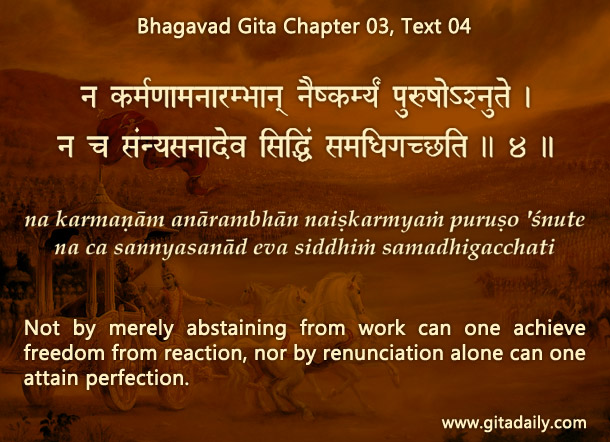Suppose a person with cough decides to suppress it. Such suppression is unsustainable – one can’t suppress the urge to cough for long – and undesirable: the cough will worsen internally while one is busy battling to suppress its outer expression.
The same happens with the artificial suppression of desire, as attempted by those who believe that just renouncing the world will guarantee their liberation. However, renouncing thus is like suppressing cough. For the patient the problem is not the external act of coughing, but the internal infection by germs that impel one to cough. Similarly for the materially entangled, the problem is not that they are externally engaged in the material world, but that they are internally driven by material desires which impel them to seek sensual gratification, thereby perpetuating their entanglement. Aptly, the Bhagavad-gita (03.04) warns that mere renunciation doesn’t ensure liberation. Artificial suppression of cough doesn’t cure it, but aggravates it. Similarly, artificial renunciation doesn’t liberate, but entangles further. One may become a pretender who though proud of renouncing worldly pleasures externally illicitly fantasizes about them internally (03.06).
What brings about liberation is not just the act of renunciation, but the intent of purification
Of course, Gita wisdom acknowledges the validity, even the glory, of renunciation as a time-honored path to liberation. But it insightfully classifies renunciation in the three modes (18.07–09) and stresses that what brings about liberation is not just the act of renunciation, but the intent of purification. Without a focus on purification, mere renunciation can be unproductive or even counterproductive.
Bhakti-yoga facilitates purification most efficaciously by connecting us with the all-pure Supreme Lord. Accordingly, the Gita concludes by recommending bhakti-yoga for everyone, both renunciates and householders. By focusing on remembering and serving Krishna, in whatever external situation is best suited for us, we all can rectify our implication in material existence.

Explanation of article:
https://www.youtube.com/watch?v=79_FtgNtFE0

In the verse 3.04 mentions abstaining of work and renunciation but both means the same. Please explain what is the difference between two.
Answered here:
http://www.thespiritualscientist.com/2015/04/what-is-the-difference-between-giving-up-action-and-renunciation-in-gita-3-4/
ys
ccdas